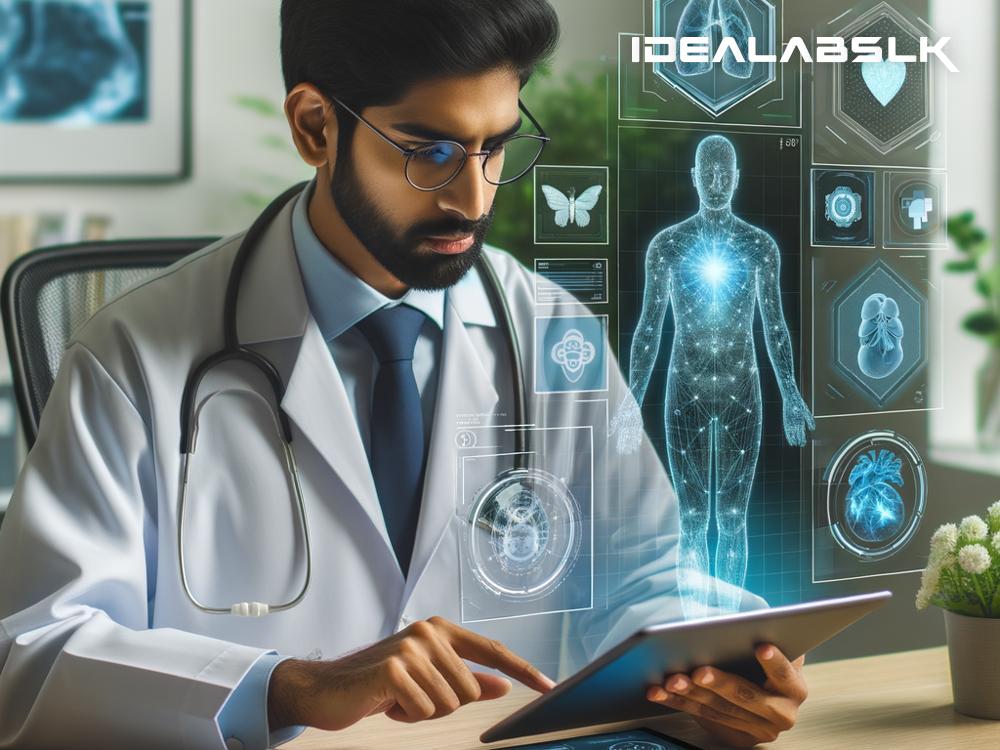How Artificial Intelligence is Changing the Game in Medical Diagnostics: Spotting Illness Early and Crafting Personalized Treatments
In today's world, artificial intelligence (AI) isn't just a buzzword or something we see in sci-fi movies—it's a revolutionary technology that's making waves in various sectors, especially healthcare. One of the most thrilling advancements is how AI is transforming the way doctors diagnose diseases. It's like having a super smart detective that can spot clues about diseases that humans might miss, and it's making a real difference in catching illnesses early and figuring out the best way to treat them for each individual.
Early Detection: Playing Detective in Diagnostics
First off, let's talk about how AI is a game-changer in spotting diseases early on. Detecting a disease early can often mean the difference between a simple treatment and a long, drawn-out battle. AI systems can analyze medical images, like X-rays or MRIs, with incredible accuracy and speed, sometimes even noticing things that escape human eyes.
Imagine trying to find a needle in a haystack. Now, imagine you have a magnet that can find that needle instantly. That's a bit what it's like using AI in diagnostics. It can sift through massive amounts of data and identify patterns or anomalies that might suggest a disease. For conditions like cancer, where early detection can significantly increase survival rates, this is huge.
Tailored Treatments: Personalizing Medicine Like Never Before
Now, onto another cool aspect: personalized or tailored treatments. Everyone's body reacts to diseases and treatments differently. That’s where AI steps in to help doctors figure out the best course of action for each person. By analyzing data from a wide range of sources, including genetic information and past medical records, AI can help predict how a patient might respond to different treatments.
It's like having a custom-made suit versus trying to fit into something off the rack. The custom-made suit is going to fit you perfectly because it's made just for you. Similarly, AI helps in crafting treatments that are specifically tailored to an individual's unique health profile, potentially improving the effectiveness of the treatment and reducing side effects.
Cutting Through the Data Clutter
One of the biggest challenges in healthcare is the sheer amount of data that doctors have to deal with. It's not just about the number of patients but also the vast amount of information from lab results, medical histories, genetic information, and the growing body of medical research. AI can process and make sense of this data much faster than a human can.
This ability to digest and analyze vast amounts of data means that AI can help doctors stay up to date with the latest research and treatment options. It's like having a super-smart assistant who can read a million books in an afternoon and then tell you exactly what you need to know.
The Future is Bright (and Smart)
So, what does all of this mean for the future of healthcare? It's pretty exciting. With AI continuing to evolve, we're looking at a future where diseases are caught at the earliest possible stage, and treatments are precisely tailored to the individual. This doesn't only mean that we'll be healthier; it also means healthcare could become more efficient and potentially less expensive since we're catching diseases early and treating them more effectively.
Of course, there are challenges to tackle, like ensuring everybody has access to these advancements and addressing privacy concerns around patient data. But the potential benefits are too significant to ignore.
Wrapping Up
In conclusion, the impact of AI on diagnostics is something to be really enthusiastic about. Whether it's acting as a super detective in spotting diseases early or as a bespoke tailor crafting personalized treatments, AI is set to revolutionize healthcare. It's making diagnostics more accurate, treatments more effective, and, ultimately, saving lives by catching diseases before they become too serious.
As we continue to advance in our understanding and implementation of AI in healthcare, we're not just looking at a future where we live longer, but also one where we live healthier. And that's a future worth being excited about.

